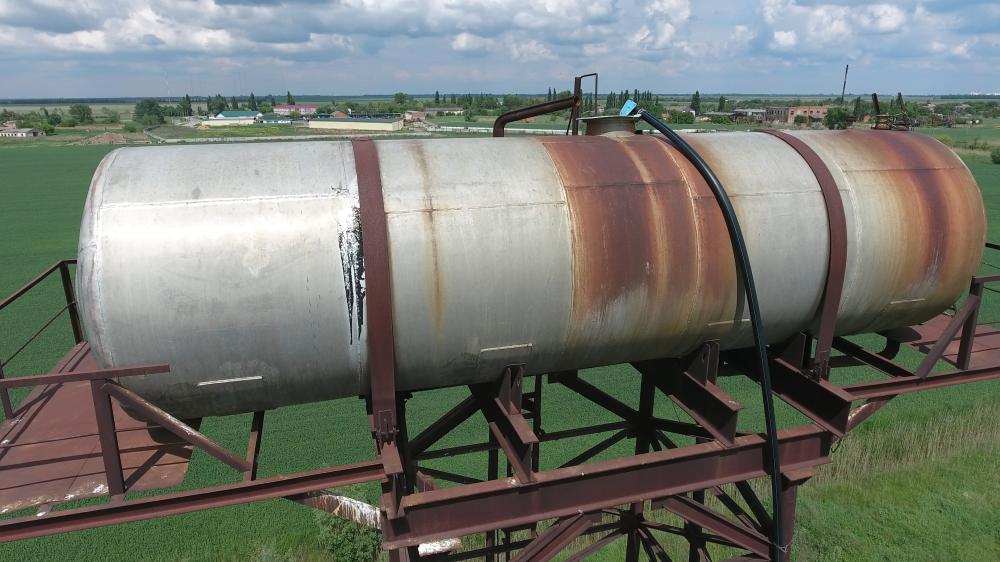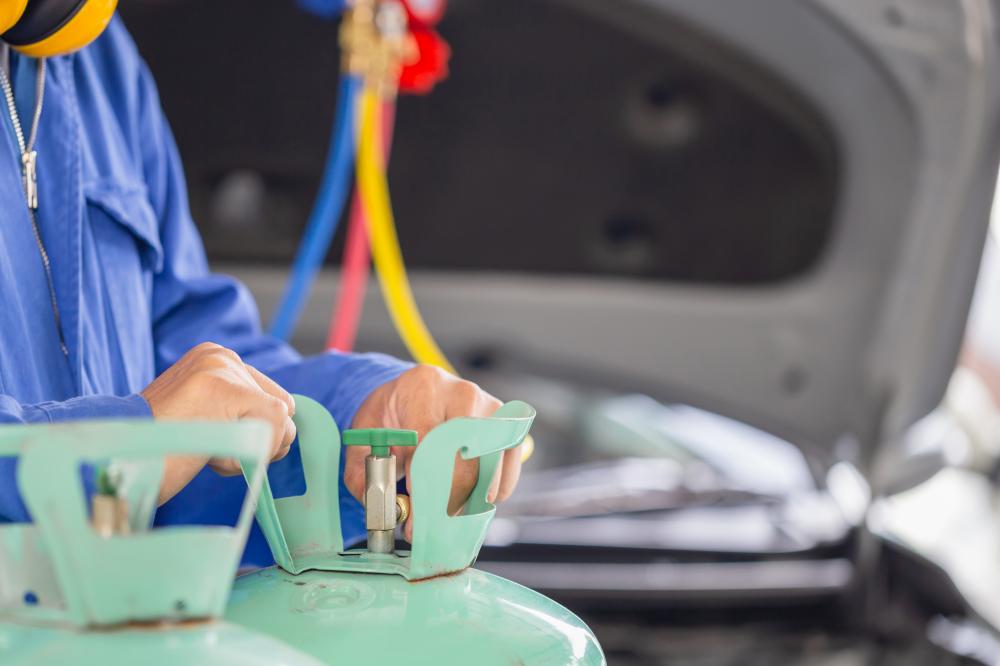Table of Contents

The Importance of Regular Fuel Tank Testing in Virginia
When it comes to ensuring the safety and efficiency of fuel storage systems, regular fuel tank testing is not just a regulatory requirement; it’s a cornerstone of responsible environmental management. At Precision Testing, Inc. we’ve been providing meticulous fuel tank testing services across Virginia, and our commitment to excellence has never wavered.
In the realm of fuel storage, the stakes are high. A compromised tank can lead to environmental disasters, business disruptions, and safety hazards. That’s why, with every inspection, we aim to give our clients the peace of mind that comes from knowing their tanks are functioning correctly and in line with local and federal regulations.
Navigating Fuel Tank Regulations in the Commonwealth
In Virginia, adherence to strict regulations governing fuel tanks is crucial. These rules are designed to protect the environment and public health. As professionals who’ve been in the field for over 35 years, we understand these regulations inside and out.
Our familiarity with state-specific requirements means we don’t just test fuel tanks; we ensure they meet the comprehensive standards set forth by Virginia’s Department of Environmental Quality (DEQ) and the Environmental Protection Agency (EPA).
Professional Services Offered by Precision Testing, Inc.
Our service portfolio is designed to be comprehensive; we don’t just stop at the basics. With a range of inspection protocols and repair services, we cover every angle of tank compliance and maintenance.
Rapid Response and Repair Services
Time is of the essence in our industry, and when a client calls with a potential issue, we respond with the urgency it deserves. Our rapid response team is equipped to handle emergencies efficiently, minimizing the risk of spillage or contamination.
A Dedicated Team of Expert Technicians
Our technicians are not only experts in their field, but they remain at the cutting edge of technology and best practices. Their dedication to their craft and ongoing training means they’re equipped to deal with traditional and emerging challenges in fuel tank testing and compliance.

Advanced Testing Techniques for Reliable Results
We utilize a variety of non-destructive testing methods, including ultrasound technology and magnetic resonance, to detect any potential weaknesses or failures in tank integrity. This not only ensures compliance but also proactively curtails environmental risks.
Our approach is a blend of tried-and-tested methods merged with innovative solutions, ensuring that every client benefits from the most accurate and reliable testing services available.
Building Long-Term Client Relationships through Support and Transparency
At Precision Testing, Inc., we see our clients as partners. They rely on our expertise and timely services to keep their operations running smoothly and in compliance with stringent environmental standards.
To aid in this partnership, we provide seamless access to test results and compliance data. Our secure web-based system ensures our clients can monitor the status of their tanks and our progress on any job, anytime, anywhere.
Personalizing the Testing Experience
While we service a large geographical area, encompassing the bustling economies of DC, Maryland, and Virginia, our approach remains personal. We understand that no two clients are alike, and we tailor our services to meet the unique needs of each one.
Whether you manage a small retail fuel station or oversee a vast network of bulk oil storage, we have the expertise to ensure your tanks are compliant and safe. This personalized approach extends to our customer service, where we pride ourselves on being approachable and responsive to our clients’ needs.
Environmental Impact and Responsibility in Fuel Tank Testing
As citizens of the beautiful Commonwealth of Virginia, we share a collective responsibility for protecting our natural resources. Precision Testing, Inc. takes this responsibility seriously by playing a pivotal role in preventing fuel leaks and environmental contamination.
Through thorough and accurate fuel tank testing, we not only serve our clients but also contribute to the wider effort to safeguard the environment for future generations. It’s a role we’re proud to play, and one that we execute with unwavering commitment.
Embracing Innovative Solutions in Fuel Tank Testing
In an industry that’s constantly evolving, standing still is not an option. That’s why we’re always looking for ways to improve our services and offer our clients the most advanced testing options available.
We continually invest in the latest technologies and training for our technicians, ensuring that fuel tank testing in Virginia is not only about maintaining standards but setting them. We bring innovative solutions to the table, solving problems before they escalate into bigger issues.
Client Testimonials: A Testament to Our Service
While we could talk all day about our dedication to the craft, perhaps the most telling evidence of our service quality comes from our clients themselves. Many have been with us for years and can attest to the thoroughness, professionalism, and reliability that define our work.
Each successful project and satisfied client is a badge of honor for us, one that we wear with pride as we continue to serve the Virginia region with impeccable fuel tank testing services.
Your Next Step to Secure Fuel Tank Testing in Virginia
If you’re in need of reliable fuel tank testing Virginia services, your search ends with us. Precision Testing, Inc. is ready to bring our expertise to your doorstep, ensuring that your fuel storage systems are tested, compliant, and above all, safe.
To learn more or to schedule a service, reach out to us at the address, phone number, or email provided. We’re here to answer any questions and get you started on the path to seamless environmental compliance and peace of mind.
Contact Information
- Address: 4530 Graphics Drive, White Plains, MD 20695
- Phone: 301-638-7800
- Email: [email protected]

How often do tanks need to be tested?
At Precision Testing, Inc., we follow the industry standards and regulatory guidelines which stipulate that tanks should undergo regular testing at intervals determined by several factors including the age and type of the tank, the substances stored, and the manufacturer’s recommendations. Generally, for commercial tanks, it is recommended to have a comprehensive test every one to three years. However, some tanks may require more frequent monitoring depending on the local regulations and the tank’s condition. It’s critical for tank owners to be aligned with the specific requirements of the Virginia Department of Environmental Quality (DEQ) to ensure compliance and safety.
What is the code for tank inspection?
The code for tank inspection often refers to the standards set by organizations such as the American Petroleum Institute (API) and the Steel Tank Institute (STI). For instance, API Standard 653 is widely accepted for the inspection, repair, alteration, and reconstruction of steel aboveground storage tanks used in the petroleum and chemical industries. At Precision Testing, Inc., we ensure that our inspections meet or exceed these standards, along with the specific requirements set by the DEQ and EPA for a variety of tank types and configurations. Our technicians are well-versed in these codes, which guides our inspection processes.
What should be checked for fuel tanks?
Diligent inspection of fuel tanks includes checking for signs of corrosion, leaks, structural damage, and the integrity of containment systems. Regular inspections also evaluate the performance of tank-related safety equipment, such as overfill alarms, spill prevention equipment, and secondary containment structures. In addition to the physical components, record-keeping, and compliance documentation are essential parts of the process. We, at Precision Testing, Inc., adopt a meticulous approach to ensure all these aspects are addressed, resulting in a safer operation for our clients and the environment.
How often should fuel tanks be inspected for leaks and damage?
Regular visual inspections should be carried out monthly to check for any obvious signs of leaks or damage. More thorough, formal inspections using specialized equipment, such as ultrasonic testing devices or vacuum testing, should be conducted according to the frequency suggested in industry guidelines and depending on the type of tank and stored material. At Precision Testing, Inc., we assist our clients in establishing an inspection schedule that complies with local and federal regulations, ensuring their fuel storage tanks maintain the highest safety and environmental standards.
What are the benefits of comprehensive fuel tank testing?
Comprehensive fuel tank testing does more than just comply with regulations; it provides security and operational benefits. Early detection of potential issues can avoid costly cleanups and downtime. It also extends the lifespan of your tanks and reduces the risk of fuel contamination. Our company’s thorough approach to testing can prevent the severe consequences of a leak, protecting not only the environment but also your business’s reputation and financial well-being. Ultimately, regular and detailed inspections are an investment in sustainability and safety.
How should tank owners prepare for an inspection?
Tank owners can facilitate inspections by maintaining clear and up-to-date records of previous inspections, repairs, and maintenance activities. Ensuring easy access to the tanks, including the surrounding area, is also vital. It’s beneficial to have a list of concerns or observations about the tank’s performance or any changes in the surrounding environment since the last inspection. At Precision Testing, Inc., we value proactive communication with our clients to ensure that the inspection process is as efficient and thorough as possible.
Resources for Fuel Tank Testing and Regulations
- Environmental Protection Agency (EPA) – Fuel Storage Tanks: Guidelines and information on federal regulations for underground storage tanks. EPA Underground Storage Tanks (USTs)
- Virginia Department of Environmental Quality (DEQ): State-specific requirements and resources for fuel tank owners in Virginia. Virginia DEQ Underground Storage Tanks
- The National Institute for Storage Tank Management (NISTM): Non-profit organization providing information regarding storage tank management. NISTM
- U.S. Department of Labor – Occupational Safety and Health Administration (OSHA): Regulations and guidance on the safe management of fuel storage tanks. OSHA Flammable Liquids
- American Petroleum Institute (API): Industry standards for tank testing and inspection, including recommended practices for examination of aboveground petroleum storage tanks. API Storage Tanks
- National Fire Protection Association (NFPA): Codes and standards for the safe storage and handling of fuels. NFPA 30: Flammable and Combustible Liquids Code
- Steel Tank Institute (STI): Resources for the maintenance and technology of steel tanks, including standard practices and inspection protocols. Steel Tank Institute
